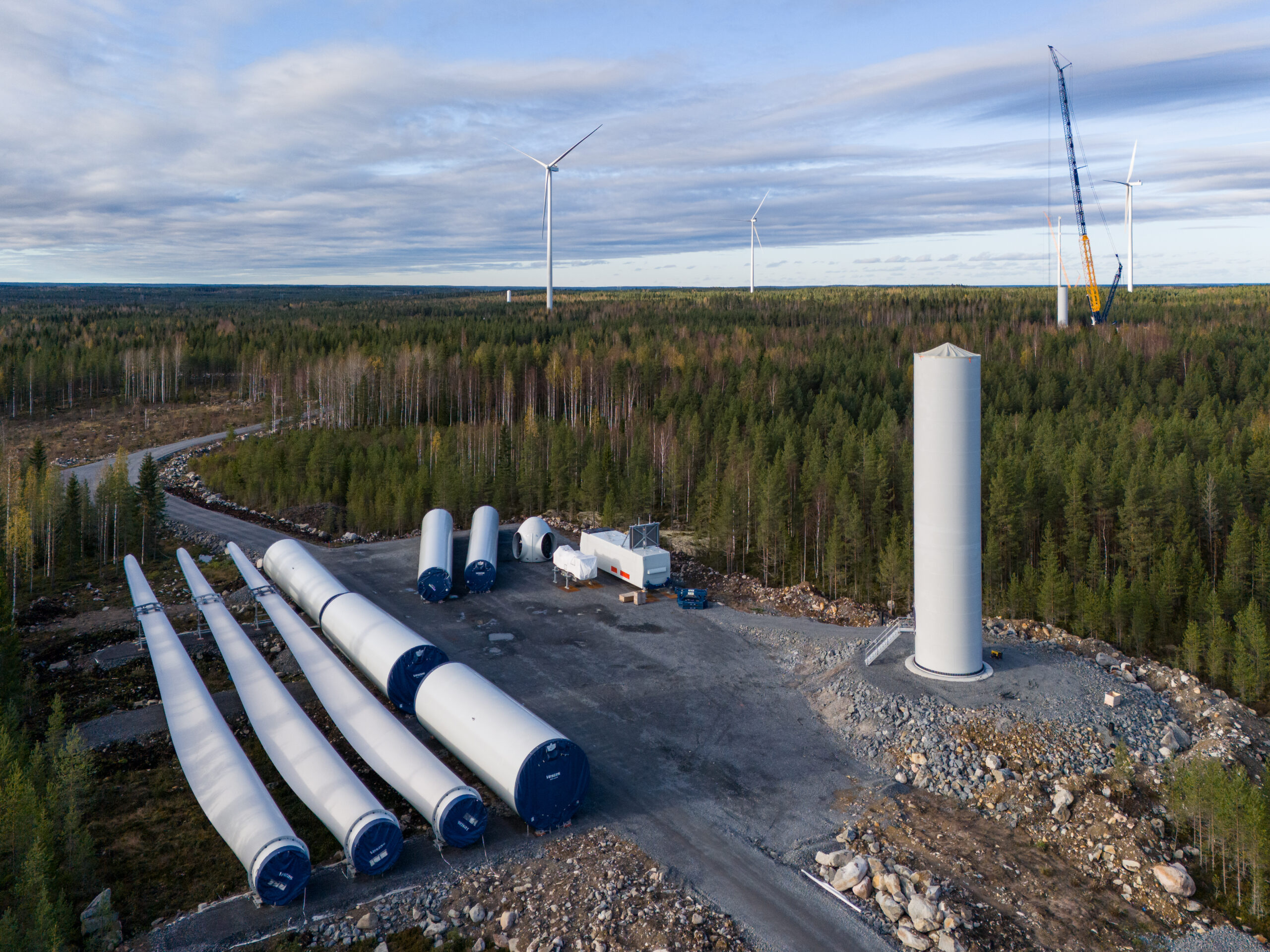According to the Decision-Maker Barometer by Renewables Finland, political support for industrial-scale wind and solar power is strong. National decision-makers and officials, in particular, have a positive attitude toward renewable electricity production: the majority support the expansion of wind and solar power in Finland. The main perceived benefits are strengthened energy self-sufficiency and the mitigation of emissions and climate change.
According to a survey conducted by Aula Research in the summer of 2025, industrial-scale wind and solar power enjoy high acceptability among national decision-makers, officials, and the media: 83 percent want to significantly or somewhat increase wind power production, and 92 percent want to significantly or somewhat increase solar power production in Finland.
Respondents indicated that the greatest benefits of expanding wind and solar power are increased energy self-sufficiency and reduced emissions and climate change. For wind power, enabling industrial investments in the green transition was also emphasized. Additionally, the effect of lowering electricity prices was considered a benefit.
According to respondents, new power plants should primarily be built in already developed areas and industrial zones. This view was shared by 74 percent of respondents for wind power and 79 percent for solar power. For wind power, the sea (65 percent), and for solar power, decommissioned peatlands (71 percent), were also considered suitable locations.
“The message from decision-makers and officials is clear: More wind and solar power in wanted in Finland, and it should primarily be built in already developed areas. It is contradictory that, at the same time, the Government is preparing a reform of the Land Use Act that includes a fixed minimum distance from residential buildings. In Finland, industrial areas are mostly located near residential areas, so a large fixed distance from housing would make it difficult or even impossible to utilize industrial areas and other built environments for renewable energy production in many places,” says Anni Mikkonen, CEO of Renewables Finland.
Conditions for acceptability are created at the municipal level
The barometer also examined which factors improve the acceptability of renewable energy production at the municipal level. Respondents identified active local engagement, opportunities for local decision-making (e.g., zoning authority), and property taxes generated by projects as the most important factors enhancing acceptability.
“The results align with previous research by the University of Eastern Finland, which found that wind power acceptance in Finland is strengthened by municipal decision-making authority and direct economic benefits from property tax revenues. This combination sets Finland apart from other countries and is an important asset. If municipal decision-making is restricted by national regulation, project acceptability may also decline,” emphasizes Mikkonen.
The greatest perceived drawbacks of expanding wind power were visual and noise impacts, as well as effects on local wildlife. For solar power, the main concerns were variable and summer-focused energy production, environmental impacts of projects, and the large land area required for production.
Download the Decision-Maker Barometer (In Finnish)
Aula Research conducted the Renewables Finland Decision-Maker Barometer in the summer of 2025. A total of 209 respondents from the national level participated, with data collected via online surveys and telephone interviews. This survey is a follow-up to the survey conducted in 2024.
Contact information:
Anni Mikkonen, CEO, Renewables Finland, +358 40 771 6114, anni.mikkonen@suomenuusiutuvat.fi
Melina Mäntylä, Partner, Aula Research, +358 40 821 7842, melina.mantyla@aularesearch.fi


